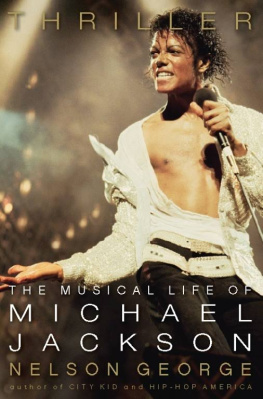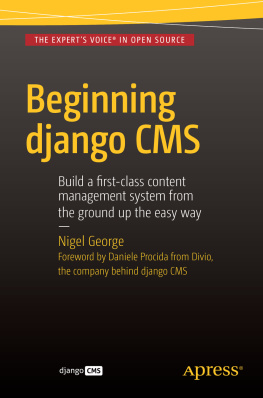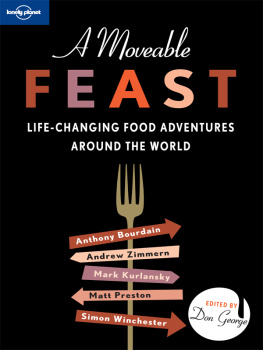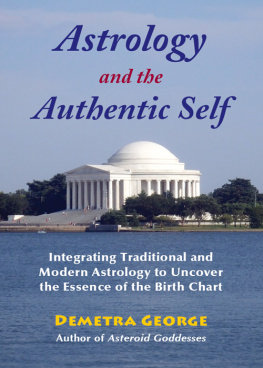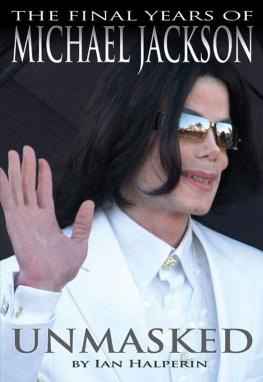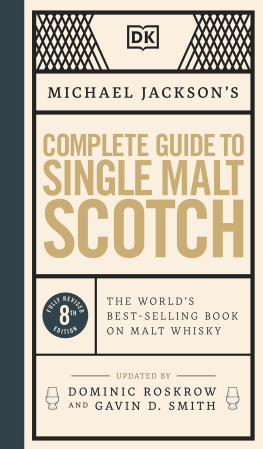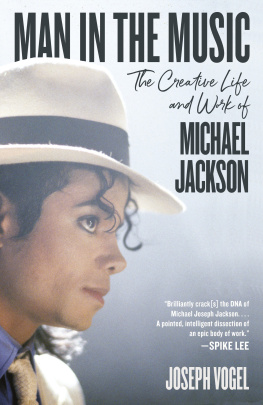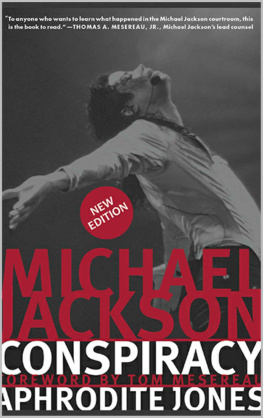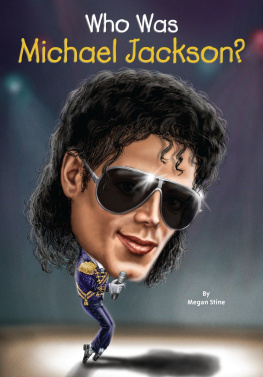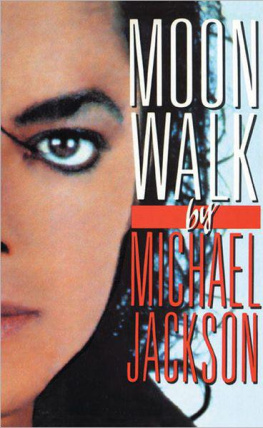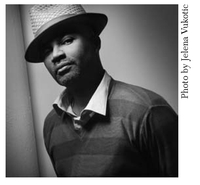ACKNOWLEDGMENTS
Thanks to Robert Christgau, Mark Rowland, Adam White, Radcliffe Joe, Von Alexander, John McClain, Steven Ivory, Ed Eckstine, Teddy Riley, John and Stephen Barnes, the late Earl Van Dyck, and Quincy Jones for the conversations and help over the years that informed this narrative.
Nelson George is the award-winning author of a dozen books, including the classics Hip Hop America and The Death of Rhythm and Blues, and the acclaimed memoir City Kid. He has been a columnist for the Village Voice and Billboard , and has written for a range of magazines including Rolling Stone, Playboy, Esquire, and Essence. He is also a two-time recipient of the ASCAP-Deems Taylor Award. George was born in Brooklyn, where he still lives.
2009
IWAS TAKING MY SEAT AT A PANEL DISCUSSION AT Brooklyns Long Island University to celebrate the twentieth anniversary of Spike Lees landmark film Do the Right Thing when I received a text from Fab Five Freddy Braithwaite, a friend and former host of Yo! MTV Raps. TMZ.com was reporting that Michael Jackson was dead. As the news filtered through the crowded lecture hall, folks were commenting on the irony of talking about an iconic 1980s film on the day that decades most important pop star died.
But the connection among Spike, Michael, and me was more intimate than most folks at the event knew. In January 1984, on the night that Jackson was honored by the Guinness Book of World Records at the American Museum of Natural History, Dell published my first book, The Michael Jackson Story, a pocket-sized quickie biography of the singer. It would go on to sell more than 1 million copies and reach number three on the New York Times paperback best-seller list. I was twenty-six years old, and because of that book, for the first time in my young life I had something that could be described as disposable income.
With the money I made from the Michael Jackson book, I was able to afford my first apartment without a roommate. It was in a beautiful but then-unfashionable, brownstone-filled section of downtown Brooklyn called Fort Greene. There I befriended a young filmmaker named Spike Lee and saw an early cut of his film Shes Gotta Have It. Over the course of 1985 I would invest $3,500 in Spikes film, a cinematic event that not only began his historic career, but also heralded a black film movement that still has impact today.
If I hadnt written that book, I would have never moved to Fort Greene or invested in Spikes work. My life, and to some small degree, black pop culture would have been different without my book and, far more significantly, without Michaels ascension to megastardom.
After the panel, I turned on my Blackberry and found it filled with messages from friends and a slew of interview requests from publications, television shows, and radio broadcasts. LIU is a short walk from my apartment, so I went home, warmed up some leftovers, and sat quietly most of that evening, not returning messages or following the news.
At that moment, I didnt want to mourn in public. Nor did I want to speak to any aspects of Michaels life I didnt know anything about. I hate that cable news has become a place of empty speculation where supposed expertsmany only with expertise in their own opinionsclutter the twenty-four-hour news cycle with hot air. My feelings were complicated by the fact that I had just signed a deal to write a book (this book) about the enduring influence of Thriller as a recording and cultural artifact. In anticipation of this work, Id already looked into buying tickets for one of Michaels fifty shows at Londons O2 arena. In the immediate aftermath of his passing, I wrote a eulogy and posted it on my web site and did a few interviews, focusing on music and trying not to engage in the tabloid narrative of his death.
That night I thought about the great American cinema masterpiece Citizen Kane, Orson Welless epic vision of the rich, brilliant, and ultimately doomed Charles Foster Kane, who died disgraced, alone, and unloved in his California mansion, far removed from the glory years of his media empire. The parallel to Jacksons life wasnt seamless, of course. Whereas Kane left this world at Xanadu, his own personal fantasyland of secret rooms, art, and creatures collected from around the globe, Michaels home, Neverland, had been taken from him by debtors. Instead, he died in a rented house under the care of a sketchy doctor who has been charged with manslaughter. In some ways, the better parallel was the director/actor Orson Welles himself, who was hailed as a genius in his twenties, declared a has-been in his thirties, and resurrected as a figure of camp appeal in the last decades of his life. With Citizen Kane, the young Welles created a masterpiece that haunted him for the rest of his life. Thriller played a similar role in Michaels life, attaining a level of international success hed spend the last twenty-five years of his life trying to duplicate.
Im a year older than Michael Jackson. Im from a black working-class family and share with him the same astrological sign, none of which, rationally speaking, means a whole lot. What these parallels do suggest is that I was born at the right time to be swept up in the original burst of Jackson-mania and that, for much of my life, I could identify with him.
When I was a young writer, Michael was one of my primary subjects. Writing about him, I was able to get my first book deal. Not only did this help me financially, but it also inspired a couple of my best pieces of music criticism. His titanic success set many ships on fruitful journeys, and mine was just one of them. Now, as a middle-aged African American man, I marvel at his long, historic, singular career.
In 1999 ESPN asked me to contribute an essay on Michael Jordan to the book
Sports Century, a look back at the greatest athletic achievements of the twentieth century. It was to be the books last major essay, because it looked at the 1990s with Jordan as the decades most significant player. I began that essay this way:
To write about Michael Jordan is to stand upon a mountain of press clips and pretend they dont exist. At the end of a century that made sports a global, 24 hour, over analyzed, zealously professional, obsessively marketed, and extravagantly played commodity, Jordans career is the culmination of a long journey. Which means his every eye lash flutter has been photographed, catalogued, annotated, foot-noted, and e-mailed by somebody at some time. So I will not be so foolish as to attempt to topple or even torch that mountain. Its too large for me to push and I lack the fuel to incinerate it completely.
I ended by observing that my essay would be laid atop the mountain as it awaits some yet unseen 21st century bonfire.
By substituting Michael Jackson for Michael Jordan and substituting entertainment business for sport, I could write the same paragraph. However hard it was for me to find something fresh to say about the basketball great, trying to do that with Jackson is even more challenging. The work I was commissioned to write was one of those making of a great LP volumes that have become popular in the postvinyl era.
With Michaels death, I felt a need to widen the scope of this book and be more comprehensive than I had originally intended. But I wouldnt change my focus. This is a book in which the music is central. It is the reason Michael Jackson matters. It is the reason hes a celebrity. It is why his personal life and tragic death are a matter of public record. So my perspective on Michael Jackson is in large part shaped by our respective life journeys from the 1950s into the twenty-first century.

